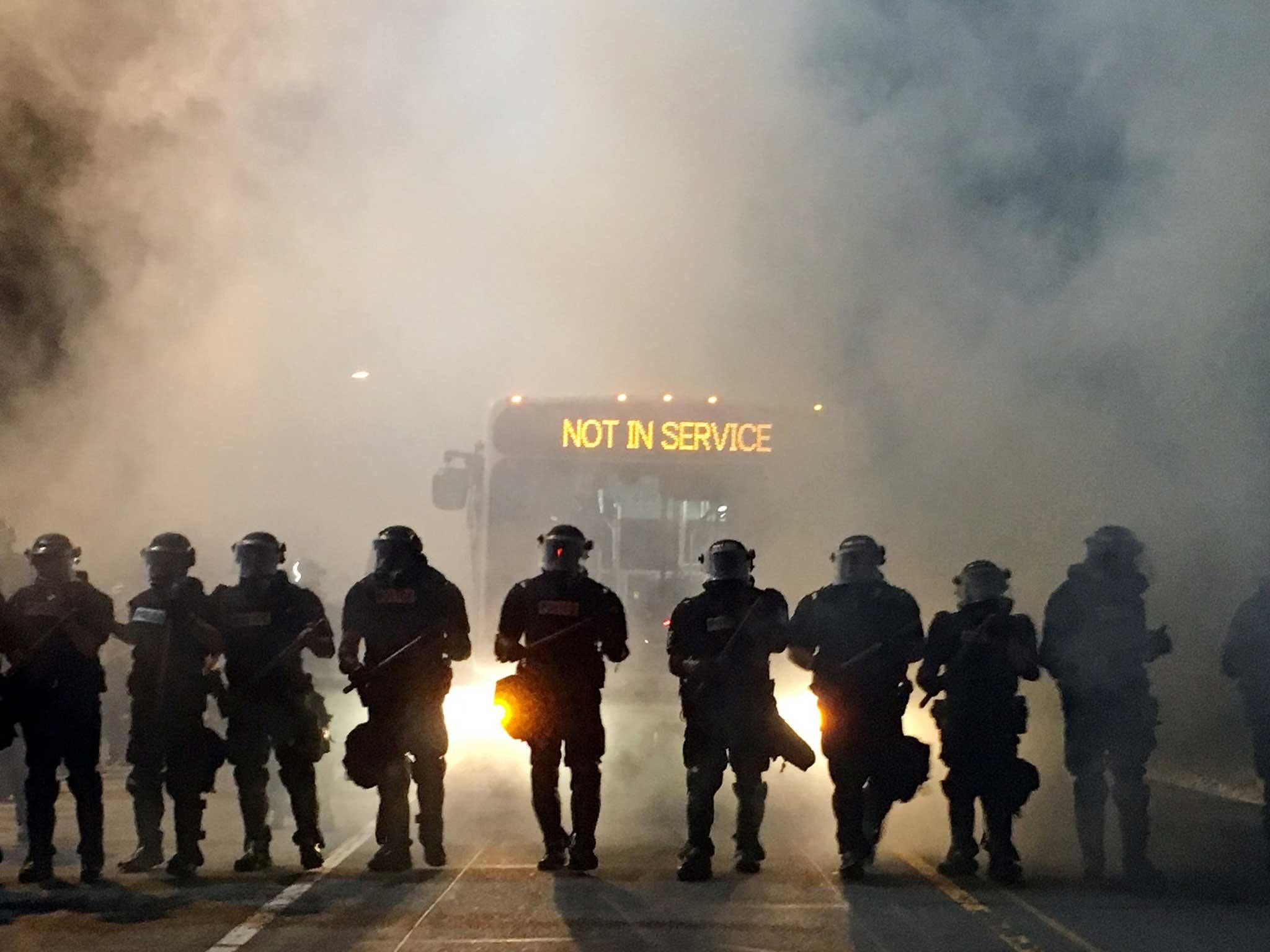Charlotte: State of emergency declared after man shot in protests over death of Keith Lamont Scott
Protesters assembled en masse a day after the killing of Keith L Scott as police donned full riot gear, making arrests and dispersing the crowd with tear gas and flashbangs
North Carolina Governor Pat McCrory declared a state of emergency during a second night of unrest in Charlotte, as demonstrators call for justice following the killing of Keith Lamont Scott by police. The National Guard and State Troopers will be deployed to assist police – who maintained a heavy presence throughout the night – in controlling the protests.
A protester was shot outside a hotel during clashes with riot officerslate on Wednesday night, with footage showing a man lying in a pool of blood as people screamed for help. He was taken to hospital in a critical condition and has been put on life support.
City of Charlotte officials said police were not responsible for the shooting but protesters doubted the claim. “We protesting. Why the hell would we target each other?” Dino Davis asked.

Police ordered demonstrators to disperse while firing tear gas and flashbangs into crowds. At least a dozen protesters were arrested throughout the evening.
The protests are reminscent of the unrest in Ferguson, Missouri, more than two years ago, as calls for significant police reform – including de-escalation training – continue amid the consistent killings of unarmed black people in cities across the country.
The Wednesday evening protest marked the second day of unrest after police shot and killed Mr Scott. Charlotte Police were searching for a suspect with an outstanding warrant in an apartment complex, when they say Mr Scott exited his vehicle holding a firearm.
Witnesses at the scene, including his daughter and siblings, said the 43-year-old father of seven was reading a book in his car. But Charlotte-Mecklenburg Police maintain that he was carrying a handgun. The police report says a gun, not a book, was recovered at a scene.
Police dashcam and body camera footage is being reviewed by investigators but has yet to be released to the public amid the conflicting accounts. A new state law signed in July, will go into effect 1 October and would no longer consider police footage to be public record.
“You know the law as well as I do – right now we can’t release it,” CMPD chief Kerr Putney said Wednesday. “It’d have a negative impact on the integrity of the case, and that’s something we’re not gonna do.”
Charlotte mayor Jennifer Roberts told MSNBC that she will view the video on Thursday, despite not being part of the investigation.
Scott's wife, Rakeiya Scott, issued a statement on Tuesday that called into question the official account of police, but vowed to "work diligently to get answers". In addition to police transparency, Ms Scott called for calm from people seeking justice for her husband.
"As a family, we respect the rights of those who wish to protest, but we ask that people protest peacefully," she said. "Please do not hurt people or members of law enforcement, damage property, or take things that do not belong to you in the name of protesting.

On Tuesday afternnon, protesters gathered outside the apartment complex. Demonstrations later extended well into early Wednesday morning, when they overtook a portion of Interstate Highway 83.
At least 16 officers were reportedly injured in the protests. It remains unclear if any protesters sustained injuries.
The protests erupted amid tension between police and the black community in Charlotte, who are disporportionately affected by law enforcement.
Black people make up only 35 per cent of the Charlotte population, yet they make up 74 per cent of cases involving use of force, according to CMPD data compiled by the Southern Coalition for Social Justice.
Bookmark popover
Removed from bookmarks